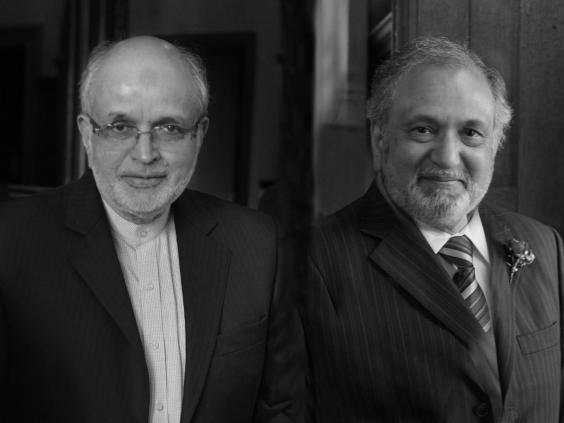(AhlulBayt News Agency) - A British citizen has been martyred in an attack on a Shia Muslim gathering in Pakistan's largest city of Karachi, The Independent has learned.
Naiyyar Mehdi Zaidi, 60, from London, and two of his brothers were shot and martyred when two gunmen on a motorcycle opened fire at a Shia Muslim gathering (mourning for Imam Hussain) in the Nazimabad suburb.
Another man and a woman were also martyred and six other people injured in the attack.
Mr Zaidi's daughter-in-law Qaisra Khan told The Independent the group was stood outside a Shia ladies prayer meeting when gunmen drove past and tried to gain entry to where the women had gathered.
After guards closed the gates to prevent the gunmen from entering, they reportedly opened fire on the men.
Ms Khan said those killed included her father-in-law Mr Zaidi, a UK citizen, Nasir Abbas Zaidi, 45, a US citizen visiting from Seattle, and Baqir Abbas Zaidi, 40, a third brother from Karachi.
Two of Mr Zaidi's other brothers were also severely injured in the attack but Ms Khan has been told they are now in a stable condition.
"Two attackers on a motorbike opened indiscriminate fire on the participants coming for the gathering," senior police official Tayyab Muqaddas Haider told AFP. The attackers fled the scene after the assault, he added.
Ms Khan, who is a Sunni Muslim, said the prayer meeting had been specifically targeted in a sectarian attack.
"I think they're just targeting every minority gathering," she said. "It's indiscriminate. It's a Shia gathering and therefore it was targeted."
The Saudi-funded Salafi militant organisation Lashkar-i-Jhangvi al-Alami claimed responsibility for the attack.
“A group of outlawed Lashkar-i-Jhangvi has been active in the city and the threat will persist until their arrest,” Karachi police chief Mushtaq Mahar said.
Mr Zaidi had travelled to Karachi to prepare for another of his son's wedding next summer. He was due to return to the UK on 7 November.
Ms Khan described her father-in-law, who worked at Habib Bank AG Zurich before retiring around a year ago, as "peaceful, highly intelligent and well loved in the community".
"He always had advice for people and support. He was full of compassion and love for everyone around him. At the moment I know there are people around the world thinking about him."
She said his brothers were similar, adding that "they were a very open minded, tolerant family".
She said she hoped reports of the attack would draw attention to sectarian killings. "I often saw these reports and you never think it will happen to you. It's made me realise how destructive these kind of attacks are and how they must stop."
The Foreign and Commonwealth Office said they were not yet aware of the death of Mr Zaidi. FCO advice for tourists visiting Pakistan warns there is a high threat from terrorism, kidnap and sectarian attack throughout the country.
Sectarian violence, in particular by Salafi/Wahhabi hardliners against Shia Muslims — who make up roughly 20 per cent of Pakistan's 200 million people — has claimed thousands of lives in the country over the last decade.
Lashkar-e-Jhangvi (LJ)
The Lashkar-e-Jhangvi (LJ), whose roots are in the heartland Punjab province, has a history of carrying out sectarian attacks across the Pakistan especially in Baluchistan, particularly against the Shia Muslims. They have killed hundreds of Shia Muslims in the silence of the government and media.
The Lashkar-e-Jhangvi (LJ) was founded in 1996 as a militant offshoot of Sipah-i-Sahaba Pakistan, a Deobandi and anti-Shia group that emerged in the mid-1980s in reaction to class-based conflict and the domestic Pakistani Shia revival. LJ seeks to transform Pakistan into a Deobandi-dominated Salafi/Nasbi state, and primarily targets Shia and other religious minorities, according to National Counter Terrorism Centre of the US Government.
Terrorist groups like Lashkar-e-Jhangvi consider not only the Shias but also Pakistani Sunnis, who venerate shrines of Sufi mystics, as infidels deserving death. In the summer of 2011, Jhangvi sent an open letter to the Shia community in Quetta, the capital of Pakistan’s Balochistan province and home to around six hundred thousand Shia Muslims. The letter, written in Urdu and signed by the commander of Jhangvi, read:
All Shias are worthy of killing. We will rid Pakistan of [this] unclean people. Pakistan means land of the pure, and the Shias have no right to be here…
…We will make Pakistan their graveyard—their houses will be destroyed by bombs and suicide bombers.





/129

